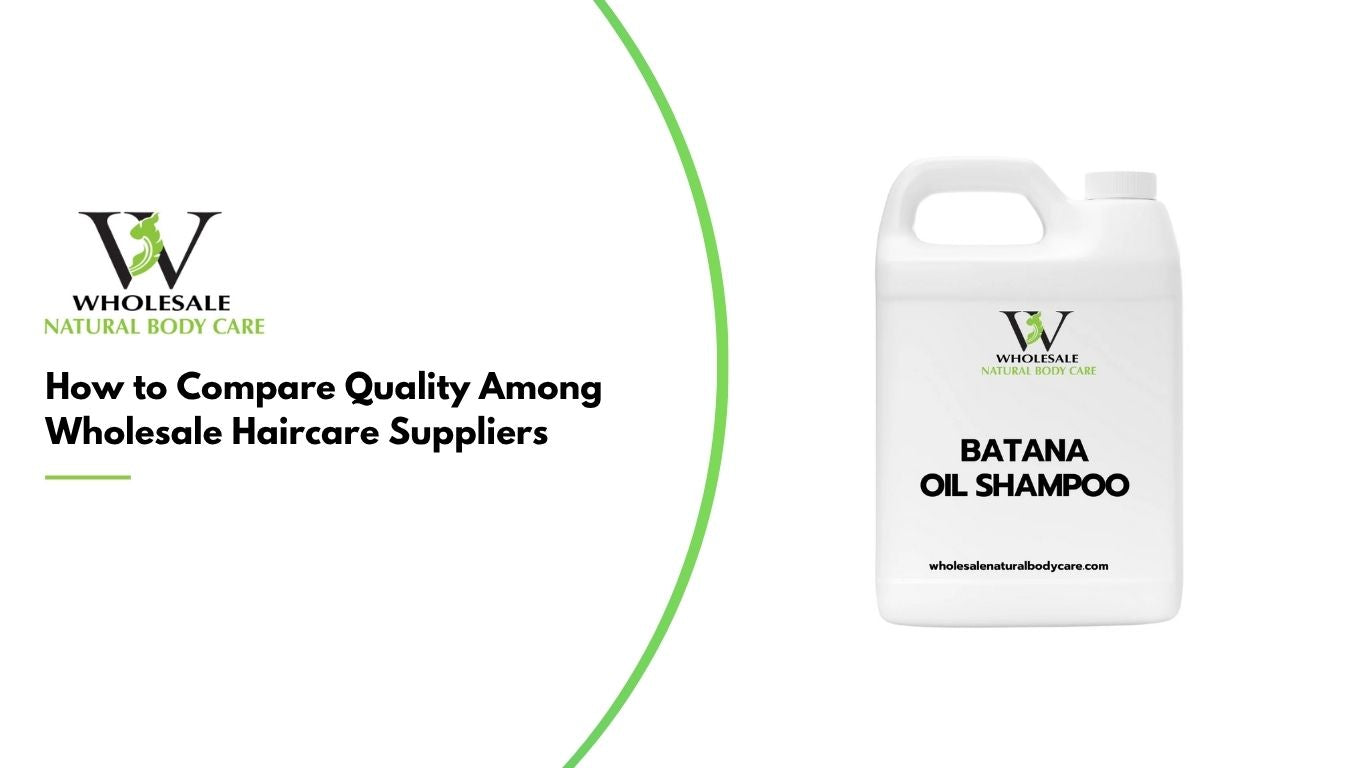There is no doubt that finding the right wholesale haircare supplier can make or break your business. Keep in mind that whether you're stocking a salon or building a private label brand, the quality of your wholesale shampoos and conditioners directly affects your reputation and bottom line.
But nowadays there are countless suppliers who claim to offer premium products at competitive prices; how do you separate genuine quality among them?
Start With the Ingredient List
The foundation of any good haircare product lives in its formulation. When comparing suppliers, ask for complete ingredient lists for their shampoos and conditioners.
Quality suppliers provide this information readily because they're proud of what goes into their products.
You should look beyond the marketing claims on the front of the bottle. A product labeled as "natural" or "professional grade" means nothing if the ingredient list tells a different story. Check where key ingredients fall in the list.
You should also pay attention to what's missing too. Quality formulations skip harsh sulfates like sodium lauryl sulfate, which strip hair of natural oils. They avoid parabens, synthetic dyes, and unnecessary fragrances that can irritate the scalp and damage hair over time. Suppliers who understand modern consumer preferences formulate products that work without these outdated ingredients.
Request Samples and Test Them
Numbers on paper only tell part of the story. You need to actually use the products. Any reputable supplier will send samples of their wholesale shampoos and conditioners before you commit to a large order. Test these samples yourself and give them to people with different hair types.
Check Manufacturing Standards
Everybody knows that how products are made matters. You should ask suppliers about their manufacturing facilities and quality control processes. Do they follow Good Manufacturing Practices? Are their facilities inspected and certified? Can they provide documentation?
Be cautious of suppliers who can't or won't discuss their manufacturing processes. A great sample batch means nothing if the next order arrives with different color, scent, or performance. Ask suppliers about their quality control processes for maintaining consistency. How do they ensure batch-to-batch uniformity? What happens if a batch doesn't meet standards?
Established suppliers track their batches carefully and have protocols for handling any variations. They should be able to explain their testing procedures and show you how they maintain quality across production runs.
Consider Packaging Quality
Keep in mind that cheap bottles that crack easily, pumps that stop working after a few uses, or labels that peel off with slight moisture suggest a supplier cutting corners.
Quality packaging protects the product and makes it easier for your customers to use. It also affects how your brand is perceived. Test the packaging along with the product itself. Does it feel substantial? Do closures seal properly? Will it hold up during shipping and storage?
Compare Pricing Realistically
Seriously, don’t get tricked by that rock-bottom price tag—it’s rarely the best deal for your business. Instead, think about what really matters: how much product you actually need per use, whether it’ll make your clients’ hair look and feel amazing, and if your supplier offers flexibility like volume discounts or scalable ordering as you grow. A slightly pricier shampoo that works wonders and lasts longer?
After researching ingredients, testing samples, and comparing prices, pay attention to how suppliers treat you throughout the process. Do they answer questions thoroughly? Are they responsive and professional? Do they seem interested in helping your business succeed?
Quality wholesale shampoos and conditioners suppliers view relationships as partnerships. They want you to succeed because your success means repeat business.





